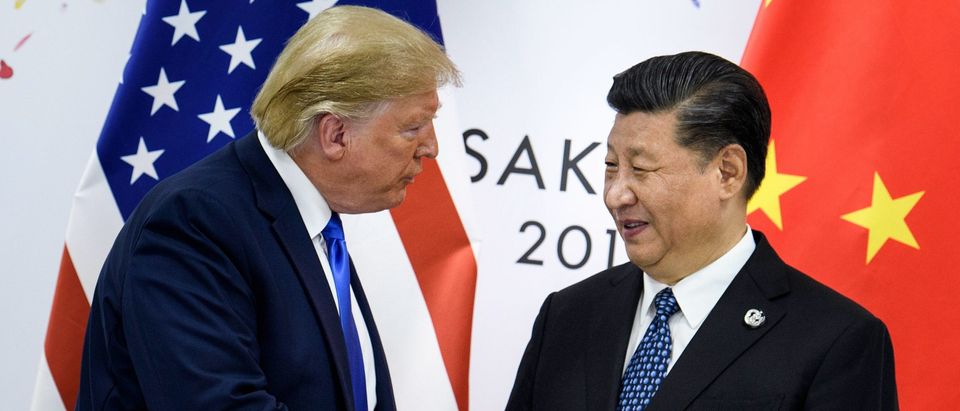Editor’s note: We endeavor to bring you the top voices on current events representing a range of perspectives. Below is a column arguing China’s foreign policy is not outwardly aggressive and that the country has been largely concerned with domestic affairs since the 1980s. You can find a counterpoint here, where James Carafano, a vice president of the Heritage Foundation and director of its national security and foreign affairs research, argues that China is a major geopolitical threat to the U.S. and democratic nations in Asia.
China has an authoritarian government whose human rights violations call for worldwide condemnations. However, not all authoritarian nations have aggressive foreign policies. Saudi Arabia, Singapore and Vietnam are cases in point. China used to be aggressive — engaging in wars, revolutionary movements and coups d’état.
However, as of 1980, it has shifted to focus on its own development. It grew its economy at a phenomenal rate, which made it possible to lift hundreds of millions of people out of poverty. After centuries of being occupied and humiliated by foreign powers, even though it has an ancient and very sophisticated culture, China seeks respect, secure borders, influence in the areas around its borders and a secure flow of the raw materials and energy from overseas on which it depends for its survival.
To determine the extent to which China is aggressive, I draw on the widely accepted definition of aggression adopted by the UN: “Aggression is the use of armed force by a State against the sovereignty, territorial integrity or political independence of another State, or in any other manner inconsistent with the Charter of the United Nations.”
We have seen such aggression recently — by other nations. For example, when Russia grabbed Crimea (in 2014) and sent troops into eastern Ukraine (beginning in 2014), as well as, earlier (in 2008), when Russian forces marched into the Georgian territories of South Ossetia and Abkhazia. Turkey has been occupying northern Syria for four years, and Saddam Hussein’s Iraq occupied Kuwait from August 1990 through February 1991.
China is very keen to reintegrate Taiwan into mainland China, because it considers Taiwan one of its provinces, but Taiwan is moving ever further away from China. China has expressed its frustration over this development for decades, with verbal tirades, diplomatic pressures, military exercises and flyovers. However, in all those together, not a shot was fired, no one was killed. Taiwan is increasingly arming itself and just elected a government that seeks to further reduce ties to China.
Japan controls the small, unpopulated Senkaku Islands (known as the Diaoyu Islands in China). China holds that the islands belong to it. For decades, China has sent naval and air patrols around the islands and made statements and websites claiming ownership. If China had sent its military to capture these islands, it is difficult to see that any other nations would go to war over these barren pieces of real estate, without any resources or strategic significance. However, China has made no such move, and the islands remain under Japanese control.
China has “captured” some shoals and piles of rocks in the South China Sea, as did Vietnam, Brunei and Malaysia. It did militarize these isles; however, as a Pentagon official explained, these are like marooned aircraft carriers. The US has preset missiles aimed at them, which would take them out in the first minutes of any confrontation. Much is made of the “clashes” between China and India. Indeed, they did go to war, but that was in the 1960s. Since then, the conflicts along this contested border have been very minor.
China’s ability to become a global power that affects the world order is severely limited by pressing domestic needs. Because China followed its one child policy for decades, its population is aging. The labor force, which grew in size and thereby helped to fuel China’s economic rise, is shrinking. Projections indicate that, by 2050, 174 million people will be lost from the workforce and 400 million people will be over age 65.
About half the population is now demanding the same affluence that the other half has gained. And the half that is well-off is demanding better health care, better education, and much less polluted cities. There are numerous protests each year across the land. The government’s legitimacy is based largely on its promise to provide its people with ever-better lifestyles, which limits the resources it can dedicate to the military. True, the military budget has been increased, but from a very small base, and it is small compared to that of the US and its allies..
China has a great deal to lose from a confrontation with the US, and it has very little to gain, even if it somehow (hard to imagine) won such a war. Why would it seek to occupy the US mainland? Japan?
China is often reported to be “dominating” other nations. China is using the large investments, credits, and aid it grants many nations to pressure them to support its economic and diplomatic interests. So do all other powers. For example, US officials used threats of hampered trade and eliminated military aid to browbeat their Ecuadorian counterparts into agreeing not to introduce a World Health Assembly resolution related to breastfeeding. The UK banned Huawei from its 5G infrastructure under pressure from the Trump administration.
The best way to compete with China on these fronts is to provide developing nations with investments, credits and aid on better terms than China does. And to invest heavily in rebuilding the American economy and shoring up our democracy — allowing the US to become again a nation that is highly respected and followed by others.
Amitai Etzioni is a University Professor and professor of international affairs at The George Washington University. He is the author of Avoiding War with China and Reclaiming Patriotism, among other books.


